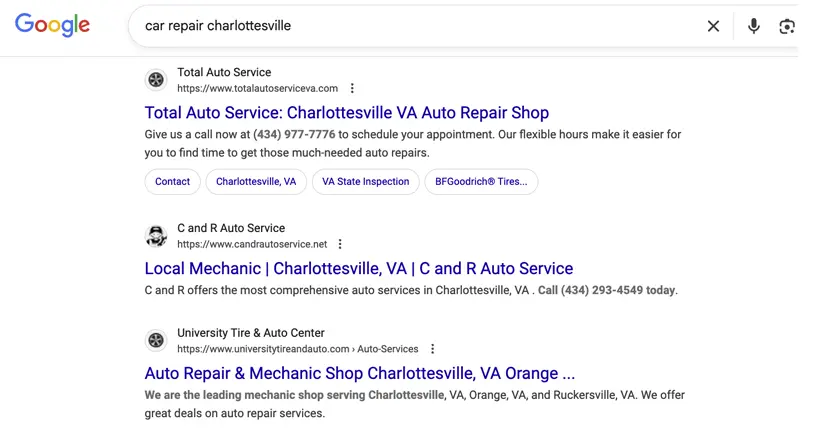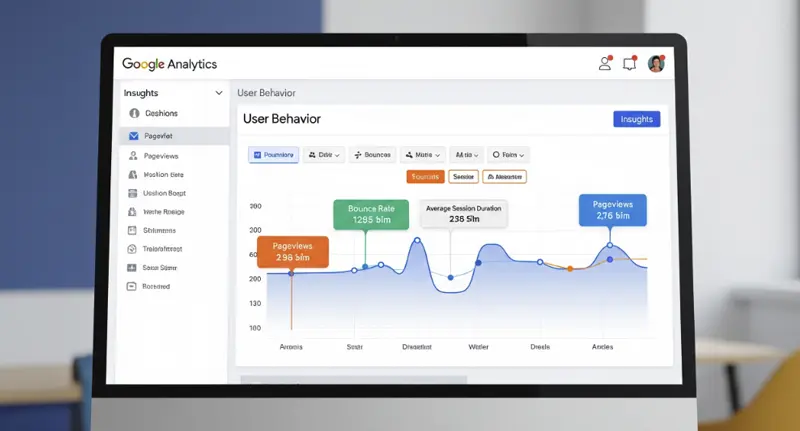What the Latest Patent Tells Us About User Behavior and Search Rankings
When it comes to Google Search Rankings, most people know the basics: keywords matter, backlinks help, and your website needs to load fast. But the real magic? That happens behind the scenes—deep in Google’s algorithm, where things like user behavior are becoming a major force in deciding who rises to the top. A recent Google Trust Ranking Patent shines new light on just how this works.
At Virginia SEO Pros, we spend a lot of time digging into how Google thinks. This helps us guide businesses toward sustainable visibility online. And this new patent is worth your attention—because it confirms what many of us in the SEO world have long suspected: Google is watching how users interact with your website, and it’s using that data to decide how high you rank.
Let’s break it down in plain English and talk about what it really means for your website.
What Is Google’s Trust-Based Ranking Patent?
Filed under the name “System and Method for Modifying Search Result Ranking Based on Implicit User Feedback,” this patent reveals that Google can—and likely does—use real-world user behavior as a signal in ranking decisions.
In simple terms, Google is watching:
- Which search results users click on (and how often)
- How long they stay on the page
- Whether they bounce back to the search results
- If they choose a different result instead
- Whether they interact more with some websites than others over time
These are known as implicit feedback signals. You’re not rating a page with stars or leaving a review, but your behavior is still giving Google clues about what you found helpful.
The patent even describes a “trust score” assigned to websites or pages. This score can increase or decrease based on user engagement and behavior patterns.
Why Does This Matter for Google Search Rankings?
It matters because it signals a shift in how Google evaluates quality. Sure, keywords, content relevance, and technical SEO still matter—but they’re only part of the equation. Google wants to rank websites that humans actually trust and enjoy using.
If your website ranks well but users quickly leave, don’t click anything, or head back to the search results, Google may assume your content isn’t delivering what it promised. Over time, that could hurt your rankings—even if your site is perfectly optimized in the traditional sense.
At Virginia SEO Pros, we emphasize both technical excellence and user experience because the two now go hand in hand to move to and stay at the top of Google search rankings. Optimizing for search engines without considering the human visitor is a losing game.

What You Can Do About It
If you’re a business owner, marketer, or someone trying to make sense of SEO, this new insight should encourage you to think about your website from a user’s perspective, not just a search engine’s.
Here are five actionable things you can do today:
- Improve Content Relevance
Make sure your content directly answers the question the user typed into Google. Avoid fluff and filler. Be helpful and specific.
- Optimize User Experience
Clear navigation, readable fonts, quick load times, and intuitive design go a long way. If users can’t find what they need, they’ll leave.
- Focus on Engagement
Add compelling headlines, use bullet points, include visuals, and make your site interactive. The longer people stay, the better your trust signals are to Google search rankings.
- Monitor Bounce Rates and Time on Site
Tools like Google Analytics can tell you where people are dropping off. Use that data to make smart improvements.
- Encourage Repeat Visits
Offer valuable content that keeps people coming back. Think blog posts, videos, downloads, or even email subscriptions.
A Real-World Example
Imagine two roofing companies in Virginia. Both have decent websites, use the right keywords, and show up on page one. But one site has clear contact info, engaging before-and-after photos, and helpful blog content. The other is outdated, confusing, and loaded with walls of text.
Over time, more users click on the engaging site, stay longer, and even bookmark it. The other one gets quick bounces. Guess which one will start climbing higher?
This is exactly the type of user behavior signal Google’s patent is referring to—and why it matters to your business.
What This Means for the Future of SEO
SEO is no longer about gaming the system. It’s about serving the user. The better your website meets real people’s needs, the more likely you are to succeed in Google Search Rankings, because that’s what Google wants too.
This aligns with Google’s broader trend toward E-E-A-T (Experience, Expertise, Authoritativeness, Trustworthiness). Every update in the last few years has pushed websites to prove they’re not just optimized—they’re genuinely useful.
Final Thoughts
The more we learn about how Google operates, the clearer it becomes: SEO isn’t just about what’s on the page. It’s about how people react to what’s on the page. And thanks to patents like this, we know that Google is paying attention.
At Virginia SEO Pros, we help businesses like yours align with what Google and your audience is really looking for. That means smart strategy, strong content, and a focus on the human experience.
If you’re ready to understand what’s actually affecting your rankings and want to build a website that earns trust from both Google and your visitors, let’s talk. We’re here to guide you toward lasting, meaningful results.


